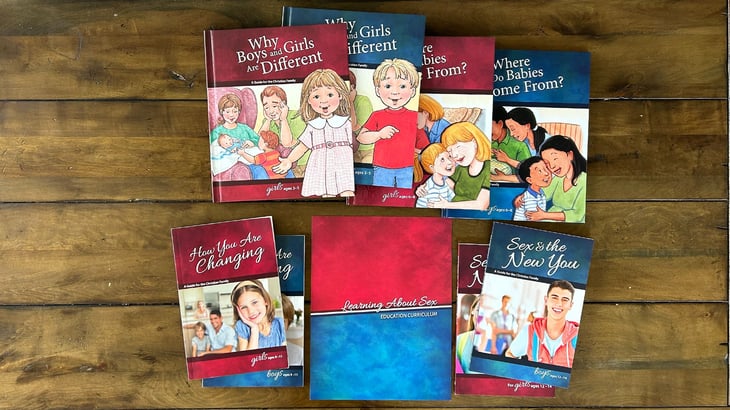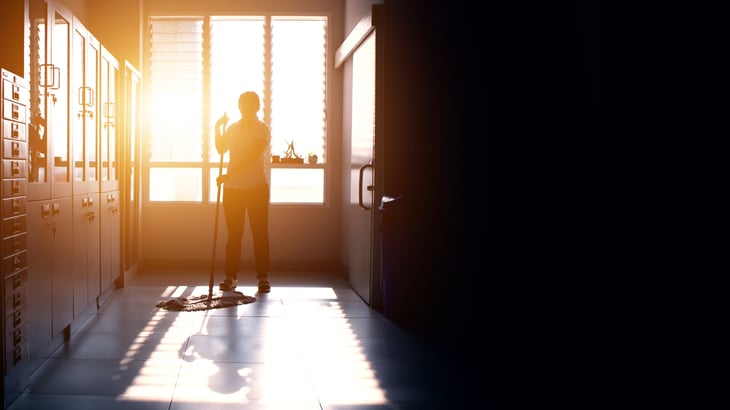Tips for Organizing Chapel Services at Your Christian School
An integral part of Lutheran education is the emphasis on faith formation. While we can do this in many different ways in our schools, one of the biggest ways of doing this is through school chapel services. I still remember when I was in Lutheran elementary school going down to the kindergarten class to pick up our “chapel buddies,” singing hymns, and—my favorite—participating in special services. For example, I will never forget the chapel service in third grade in which two of my friends were baptized.
Developing a Distinctly Christian School
The following blog post is adapted from Faithful and Flourishing: Strategies for Leading Your Christian School with Excellence by Dr. Bernard Bull, a thought leader in the landscape of Christian education and author of multiple must-read books for Christian educators.
The Importance of Defining Your Christian School’s Mission
The following blog post is adapted from Faithful and Flourishing: Strategies for Leading Your Christian School with Excellence by Dr. Bernard Bull, a thought leader in the landscape of Christian education and author of multiple must-read books for Christian educators.
5 Ways Enduring Faith Religion Curriculum Boosts Students’ Bible Knowledge
Classroom Bible learning is more than just memorizing facts—it is helping students connect with God’s Word in a way that strengthens their faith and deepens their understanding. Beyond the core aspects of lesson plans, teachers can incorporate interactive activities to reinforce biblical learning and help students apply their faith in everyday life. Enduring Faith Religion Curriculum was developed with this goal in mind, providing an aligned, Christ-centered approach that engages students at every level. Here are five adaptable activities that bring lessons to life and boost biblical knowledge in class!
3 Reasons to Teach Church History to Kids
Recently, I had the opportunity to share about the books I write at a homeschool convention. I remember one mom looked over the flier about Journey through Church History and said thoughtfully, “I don’t know if it ever occurred to me to teach my kids about church history, but I think that’s a great idea.”
Overview of Early Childhood Enduring Faith® Religion Curriculum
Families and educators share the role of encouraging children toward faith that endures a lifetime. That is why Concordia Publishing House created the Enduring Faith Religion Curriculum for Preschool–8th grade. Now, we are excited to share with you that Early Childhood has been added to the Enduring Faith family! Continue reading to learn more about this curriculum and how it nurtures the little ones in your life on their faith journey.
How to Talk to Kids about God’s Design for Men and Women
Our children face numerous challenges today, such as topics of conversation happening before they are ready to hear them, pressures regarding their identity, and more. When it comes to conversations about sexual identity and faith, the best we can do is continue to point our children back to God and His Word. In this post, we are going to cover specifics about the new Learning About Sex Education Curriculum and how it equips parents or guardians, teachers, and children to be in the world but not of it.
Getting Started with Enduring Faith Religion Curriculum
As another school year comes to a close, many Lutheran schools are already starting to order curriculum for next year. This year, we’re excited to offer the all-new Enduring Faith Religion Curriculum. Use this post as a quick reference guide to work through some of the key features of the new curriculum.
Technology as a Tool at School
How can technology further the mission of a Christian school? Digital tools are part of the landscape, so here are some observations of how they might be best used in the classroom.
School Excellence Requires Christian Community
In my last blog, I wrote about how grace drives excellence. Particularly, I pointed out the importance for the Lutheran educator to strive toward excellence in his craft of teaching. I would like to continue with that theme as we consider that while the Lutheran educator strives for excellence as a response to the grace received by God, such excellence is impossible outside of a community.






.jpg?width=50&height=50&name=IMG_20220621_160541_456%20(1).jpg)



















